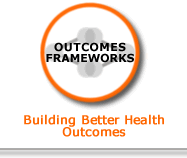 |
1.1There is evidence of an association between the intermediate outcome that society and communities understand the value of families and recognise their role in supporting them and the long-term outcome that Scotland has a society and culture that values and supports the role of parents, CYP and strong families.
|
Rationale Improving the specified short-term and intermediate outcomes detailed in model 2 and model 3 will contribute to a shared understanding in society about the value of parents, CYP and families and this will, in turn, contribute to a more supportive role for society. There is a need for further evidence around this element of model 1, but in future if work to support parents and families can be demonstrated to have contributed to national outcomes through the monitoring and evaluation of the National Parenting Strategy, this will also contribute to a shared understanding of the value of parents, CYP and families and help to build a more supportive society. Evidence shows that an area which requires attention in Scotland is in relation to enabling participation through family-friendly working practices, childcare and early education. Although the UK has a relatively generous entitlement to maternity leave among high-income countries, this largely consists of unpaid leave and the UK is currently in the lower half of Organisation for Economic Co-operation and Development (OECD) nations with regard to paternal leave provision.[1] Evidence suggests those areas where policy could support parents through family friendly work, education and childcare policy. For instance, extra-statutory leave from work arrangements, employer-provided childcare, out-of-school-hours care, elderly care supports and flexible working time arrangements could be delivered through employment policy and statutory regulation. [1] References:
|

